ซอฟต์พาวเวอร์ทางวัฒนธรรม: กรณีศึกษาวงดนตรีเมทัลไทย
Cultural Soft Power: A Case Study of Thai Metal Bands
ศักดิเดชน์ เดชมณี และ สยา ทันตะเวช, จุฬาลงกรณ์มหาวิทยาลัย
Sakdidech Dechmani & Saya Thuntawech, Chulalongkorn University
บทคัดย่อ
การวิจัยนี้มีวัตถุประสงค์เพื่อ 1) ศึกษาวิธีการที่วงดนตรีเมทัลไทยใช้ในการผสมผสานองค์ประกอบทางวัฒนธรรมไทย 2) วิเคราะห์ผลกระทบของดนตรีเมทัลไทยต่อการสร้างซอฟต์พาวเวอร์ 3) สำรวจการปรับตัวของวงดนตรีเมทัลไทยในเวทีโลก งานวิจัยนี้ใช้ข้อมูลจากการสัมภาษณ์เชิงลึกกับสมาชิกวงดนตรีเมทัลไทย 3 วง ซึ่งได้รับการสนับสนุนจากโครงการ Music Exchange Soft Power ของสำนักงานส่งเสริมเศรษฐกิจสร้างสรรค์ (CEA) ใช้วิธีการวิเคราะห์ข้อมูลเชิงคุณภาพ ได้แก่ การวิเคราะห์เชิงหัวข้อ (Thematic Analysis)
ผลการวิจัยพบว่าดนตรีเมทัลไทยมีศักยภาพในการสร้าง Soft Power ผ่านองค์ประกอบหลัก 5 ประการ ได้แก่ 1) การนำเสนอเอกลักษณ์ไทยผ่านดนตรีและการแสดง เช่น การใช้สัญลักษณ์ทางวัฒนธรรมไทยและการแสดงสดที่มีอัตลักษณ์เฉพาะ 2) การผสมผสานเสียงที่มีอัตลักษณ์ของความเป็นไทย เช่น เสียงของบทสวด 3) ผลกระทบต่อผู้ชมต่างชาติ ซึ่งสะท้อนผ่านการตอบรับเชิงบวกในเทศกาลดนตรี 4) ความสามารถในการปรับตัวเข้ากับมาตรฐานสากลผ่านเทคนิคการเล่นและแนวคิดที่เข้ากับรสนิยมของผู้ฟังในระดับสากล 5) การสร้างปฏิสัมพันธ์กับผู้ชม ช่วยให้ดนตรีเมทัลของไทยได้รับการยอมรับมากขึ้นในระดับสากล ผลวิจัยนี้ชี้ให้เห็นถึงบทบาทของดนตรีเมทัลไทยในฐานะเครื่องมือทางวัฒนธรรม งานวิจัยเสนอแนวทางในการพัฒนาเครือข่ายความร่วมมือระหว่างประเทศ และการสนับสนุนจากภาครัฐและเอกชน
คำสำคัญ: ซอฟต์พาวเวอร์, ดนตรีเมทัลไทย, อัตลักษณ์ไทย
ABSTRACT
This research aims to: 1) examine the methods by which Thai metal bands integrate Thai cultural elements, 2) analyzethe impact of Thai metal music on the creation of soft power, and 3) explore the adaptation of Thai metal bands in the global arena.The study employed qualitative data gathered through in-depth interviews with members of three Thai metal bands, supported by the Music Exchange Soft Power project from the Creative Economy Agency (CEA). The data were analyzed using thematic analysis.
The findings indicate that Thai metal music has significant potential to contribute to the cultivation of soft power through five primary factors: 1) the presentation of Thai identity through music and performance, such as the use of Thai cultural symbols and distinctive live performances; 2) the integration of unique Thai sound elements, such as chants; 3) the influence on international audiences, as evidenced by positive reception at music festivals; 4) the capacity to adapt to international standards through playing techniques and conceptual frameworks that resonate with global listeners; and 5) the cultivation of audience interaction, which enhances the international recognition of Thai metal music. This study underscores the role of Thai metal as a cultural instrument. It also proposes strategies for the development of international collaborative networks and support from both governmental and private sectors.
Keywords: Soft power, Thai metal music, Thai identity

